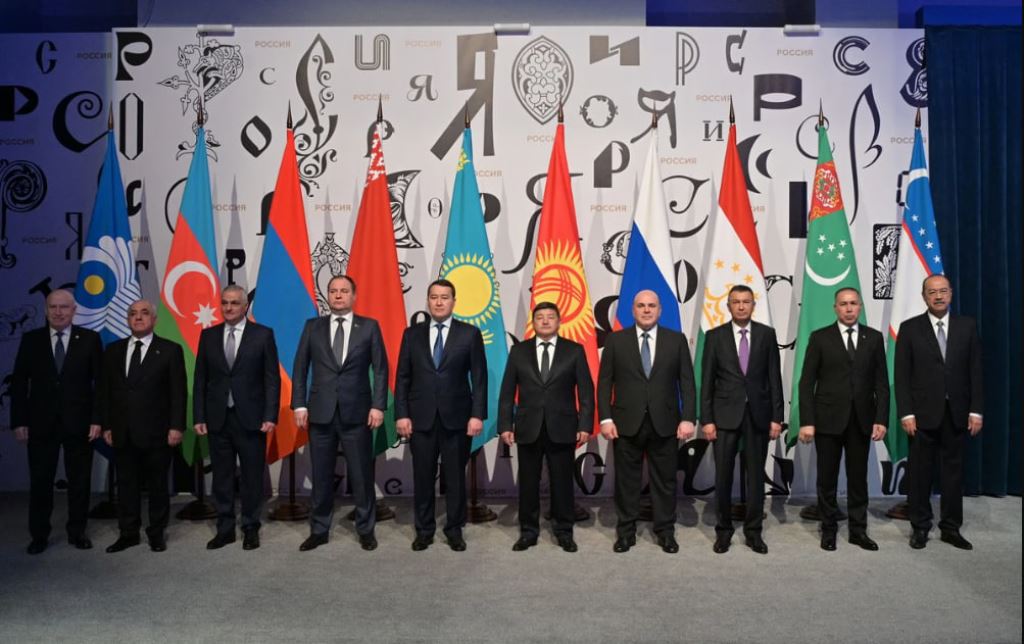Tajikistan Prime Minister Qohir Rasoulzoda participate in a meeting of the CIS Council of Heads of Government that took place a meeting of the CIS Council of the Heads of government that took place in Moscow on December 18.
The Russian Government’s press service says meeting participants also included Prime Minister of Azerbaijan Ali Asadov, Deputy Prime Minister of Armenia Mher Grigoryan, Prime Minister of Belarus Roman Golovchenko, Prime Minister of Kazakhstan Alikhan Smailov, Chairman of the Cabinet of Ministers and Chief of Staff of President’s Executive Office of Kyrgyzstan also Chairman of the CIS Council of Heads of Government Akylbek Japarov, Prime Minister of Russia Mikhail Mishustin, Deputy Prime Minister of Turkmenistan Hojamyrat Geldimyradow, Prime Minister of Uzbekistan Abdulla Aripov, and CIS Secretary General Sergei Lebedev.
The meeting was reportedly held at Russia’s initiative in the run-up to the start of Russia’s chairmanship in the CIS and the main item on its agenda was the expansion of cultural and humanitarian cooperation within the CIS.
Russia’s state-run news agency TASS reports that speaking at the meeting, Tajik PM Qohir Rasoulzoda, in particular, emphasized that intercultural dialogue plays an important role in dissemination of common humanistic values among the peoples of the CIS member nations.
He reportedly also expressed confidence that humanitarian ties will continue to play a central role in relations between the CIS member nations.
In his statement, Tajik prime minister also noted that the Russian language is of particular importance in Tajikistan, noting its status in the country’s Constitution as the language of the interethnic communication.
Qohir Rasoulzoda reportedly also noted that more than 80 percent of the country’s websites are Russian-language, and the Russian language is taught in Tajikistan at all levels of education – from kindergartens to higher educational institutions.
Following the meeting, the heads of government reportedly signed a statement on the plans for cultural and humanitarian cooperation.
The document notes the high potential of such interaction for the development of relations of partnership, friendship and good neighborliness between the CIS member nations, expresses a desire to strengthen friendly ties, expand and deepen cultural cooperation between the CIS member nations and confirms the key goals of cultural and humanitarian cooperation within the framework of the CIS.
The CIS covers much of the former Soviet Union, including as full members Russia, Kazakhstan, Kyrgyzstan, Tajikistan, Uzbekistan, Armenia, Azerbaijan, Belarus, and Moldova, as well as Turkmenistan as an “associate.”
Ukraine, which participated in the CIS since its inception, never actually ratified its charter – disagreeing with the document’s positioning of Russia as the only legal successor state to the Soviet Union. Kyiv ceased its participation in the statutory bodies of the CIS in 2018 although it remains a member of the Commonwealth of Independent States Free Trade Area. To fully terminate its relationship with the CIS, Ukraine would need to legally withdraw from the Creation Agreement, which it has not done.
It is to be noted that Moldova is also distancing itself from the CIS, but leaving is might not be so easy.
Source: Asia Plustj

